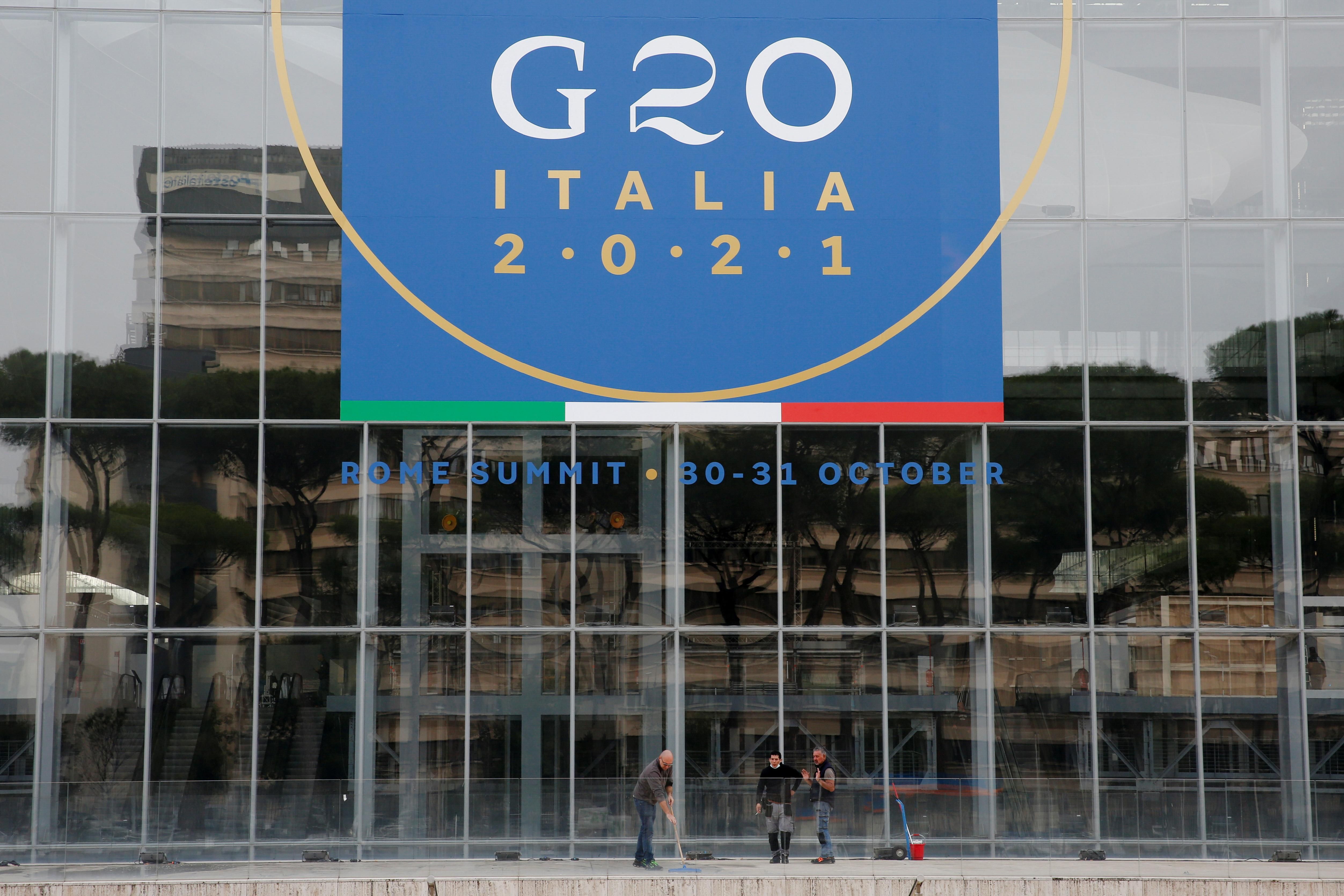On 30-31 October, the world's top leaders will gather in Rome for this year's G-20 Summit. After the pandemic forced them to meet last year by videoconference, the heads of state will once again be attending in person, allowing for the type of parallel, one-on-one meetings that have proven more productive in the past. Still, many critics of the G-20 have come to see the forum as a talk shop, a place where a lot is said but nothing really happens. Will this year be any different, given the long list of challenges the world faces, from COVID to climate change? We talked with Eurasia Group expert Charles Dunst to set the stage and find out where things are going.
What is the G-20?
The G-20 is an international forum that brings together representatives of the world's major advanced and developing economies. Formed in 1999 following the Asian financial crisis, it meets regularly to coordinate global policy on issues including economics, health, and climate.
Its members are Argentina, Australia, Brazil, Canada, China, France, Germany, Japan, India, Indonesia, Italy, Mexico, Russia, South Africa, Saudi Arabia, South Korea, Turkey, the UK, the US, and the EU (the only non-country member). Spain is also a permanent guest. The G-20 regularly invites other countries too, either because of their outsized economic importance (such as Singapore, every year since 2013) or because of their temporary international leadership positions (Brunei, a tiny Southeast Asian country, present this year because it currently chairs the Association of Southeast Asian Nations).
The grouping has held meetings every year since 1999 and has hosted a yearly summit of heads of state since 2008. Smaller meetings — of working groups focused on specific issues — happen throughout the year.
Do all these countries ever agree on anything?
Infrequently, but yes. The G-20's greatest achievement was probably its response to the 2008 financial crisis: at a meeting convened by US President George W. Bush, the group put in place an action plan to address the crisis and also set out principles and priorities for future crisis management. In April 2020, as the pandemic brought much of the world economy to a halt, the G-20 agreed to provide debt relief for low-income countries and later extended the measure through the end of this year.
But the grouping's actions have been seen as mostly insufficient to address COVID and other recent global crises. In March 2020, the G-20 published a one-page statement with no details on plans for dealing with the worst pandemic in a century. And when G-20 leaders met virtually a few weeks later, they promised to do "whatever it takes to overcome the pandemic" but put out a communique lacking any real commitments. Their promise to inject $5 trillion into the global economy was mostly a rebranding of already-announced measures.
So, does this grouping even matter?
Yes. Even if it has trouble coming up with concrete plans of action, the G-20 is a more representative forum for discussing international issues than many others. Its members account for about 80 percent of global GDP, about 75 percent of all global trade, and roughly two-thirds of the world's population. The presence of major developing countries such as China, India, and Indonesia reflects their importance for the world economic and geopolitical order. In contrast, the G-7 — comprising Canada, France, Germany, Italy, Japan, the UK, and the US — represents a bygone era in which advanced democracies led the world. The G-20 is thus seen as a much more legitimate arena to discuss the world's future.
What is on the agenda for this weekend's meeting?
Negotiations are still underway, but climate change will certainly be a key topic: G-20 members are divided over phasing out coal and committing to limit global warming to 1.5 degrees Celsius. COVID vaccines will likely also be discussed, as will the supply chain disruptions that are currently weighing on the world's economy. US President Joe Biden, meanwhile, will also push for a global minimum tax of 15 percent, a sweeping overhaul that over 130 countries have endorsed and is aimed at stemming the loss of revenue to tax havens.
Beyond the agenda, are any important bilateral meetings expected?
Bilateral sideline meetings are often where the real work takes place. Indeed, in 2018, Chinese President Xi Jinping and former US President Donald Trump held a working dinner in Argentina, ultimately agreeing to postpone a tariff increase. But Xi, who has not left China since the pandemic began, is not attending this year, and neither is his Russian counterpart, Vladimir Putin. Still, other important bilaterals are expected.
Biden will reportedly meet with President Recep Tayyip Erdogan, under whom Turkey has veered away from democracy and thus into tension with the US. Biden will also meet with French President Emmanuel Macron, who has said he hopes to "re-engage" with the US following a rift over the new US military pact with Australia. Other as yet unreported bilaterals will certainly take place, too.
Charles Dunst is a Global Macro analyst at Eurasia Group.